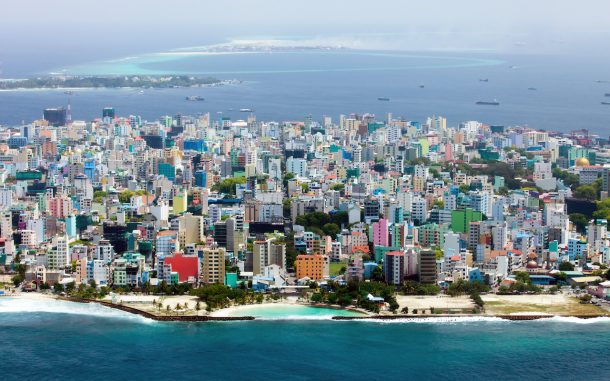Male’, Maldives – 2020’s Human Development Index (HDI), published by the United Nations Development Programme on Thursday, revealed that Maldives has the highest material footprint per person in the South Asian Region.
The material footprint determines the amount of raw material extracted to meet the final consumption demands of a country. It is an indication of the pressures placed on the environment to support economic growth and satisfy the material needs of the people. Ranked globally at 95 out of 189 countries, Maldives surpasses the world’s average material footprint of 12.3 tonnes per person, with 14.5 tonnes per person.
As consumers, we have the power to change not only our immediate environment, we can also impact entire industries and whole supply chain systems throughout the world, by choosing to buy environmentally and socially responsible goods and services. The COVID-19 crisis which has so restricted the lives of the young represents both a clear warning and an urgent challenge
Opinion-editorial penned by UNDP Resident Representative in the Maldives Akiko Fujii, Minister of Economic Development Fayyaz Ismail, and Minister of Fisheries, Marine Resources, and Agriculture, Zaha Waheed
It is essential that the generation with the greatest stake in the future should not only consume responsibly, but also use their entrepreneurial skills and imaginations to build new businesses in greener, lower carbon and more sustainable ways, as responsible producers of the future. The ‘new normal’ will be what we make it, as both consumers and producers.
The Human Development Report notes that despite the new adjustments, countries like Costa Rica, Moldova, and Panama move upwards by at least 30 places, recognizing that lighter pressure on the planet is possible.The report noted that the next frontier for human development will require working with and not against nature, while transforming social norms, values, and government and financial incentives.
According to the report, easing planetary pressures in a way that enables all people to flourish in this new age requires dismantling the gross imbalances of power and opportunity that stand in the way of transformation. Public action can address these inequalities, with examples ranging from increasingly progressive taxation, to protecting coastal communities through preventive investment and insurance according to the report.
In addition to this, the report further emphasizes that such a move could safeguard the lives of 840 million people who live along the world’s low elevation coastlines, but there must be a concerted effort to ensure that actions do not further pit people against planet.





